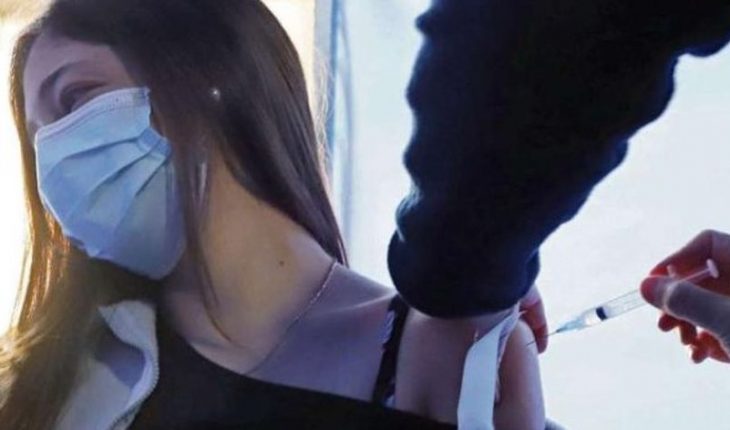A special call for higher education students to be vaccinated against COVID was made yesterday by the Government, on the eve of today’s immunization schedule calling for 20-year-olds, who to date had not been able to access inoculation. The Undersecretary of Public Health, Paula Daza, and her counterpart in Higher Education, Juan Eduardo Vargas, agreed on the “key” that is to reach between this week and next the largest number of vaccinated students possible because, they say, this would lead to the second semester resuming face-to-face classes in universities, institutes and technical training centers.” We know that young people have had a hard time. They have had to suspend their face-to-face classes, they have had to be distanced from their peers; many of them, those in the early and second years, do not know their peers. That is why we want everyone to be vaccinated. As long as they get vaccinated, we will be able to start the second semester with face-to-face classes,” said the representative of the Ministry of Health, who called on the authorities of the educational facilities to encourage inoculation in their students. The Mineduc authority, for its part, stressed the importance of resuming face-to-face in the second half of the year. He argued that in addition to affective bonds, which will alleviate mental health problems, there is also academic relevance. He said that last year there were 20% fewer graduates for those who could not do required face-to-face activities, and the enrollment of new students in higher education for those who want to “live the university experience” fell. Go get vaccinated, take your mates. As everyone does this week and next, the probability that we will have a second semester in person increases dramatically,” Vargas urged.New inoculationThe authorities stressed that a possible return would occur while maintaining health care, as they recalled that although the vaccine is “a pillar” to contain the pandemic, they do not completely stop the contagions. This is shown by figures from the Minsal published by El Mercurio, which show that in the last week more than 10 thousand vaccinated with two doses contracted the virus, which led experts to raise the idea of migrating to the use of vaccines with higher rates of infection prevention. According to data from the portfolio, Sinovac, the most used in Chile, avoids contagion by 65%, while others such as Pfizer exceed 90%. Katia Abarca, infectologist and clinical director of Sinovac’s trials in Chile, emphasized on Radio Cooperativa that although vaccines are mainly designed to lower the risk of a serious covid condition, it would be “important” that the country move forward in acquiring more efficient vaccines against contagion. However, he said that these have the difficulty of having a lower availability and require more complex logistics and transportation. “You have to use different artillery,” he said. Yesterday, Undersecretary Daza said that they are already preparing to purchase more vaccines in the event that a new immunization is required next year, and that this analysis is considering the doses that are “most effective.” In the health balance of the day, 4,607 infections and 61 deaths were reported. Re-entry projectThe Mineduc announced the opening of a new form of school re-entry to reintegrate the 99 thousand alumos out of the system under 21 years of age. It is intended to create new spaces with differentiated days in centers for adults and regular enclosures, for which a subsidy increase was proposed to Congress.
translated from Spanish: Government relies on youth vaccination to reopen universities and institutes in the second semester
June 16, 2021 |





